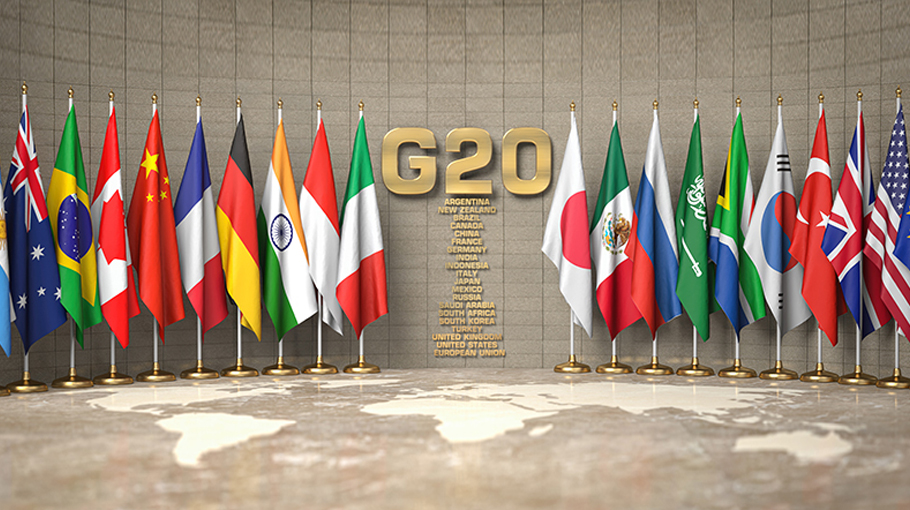G20 needs to achieve consensus

You might be forgiven if you wondered what the two-day G20 summit held on October 30 and 31 in Rome has in common with the Biblical “Babel of tongues”.
The Biblical term (Genesis 11:1—9) applied to a city (now thought to be Babylon) in Shinar where God supposedly confounded a presumptuous attempt to build a tower reaching heaven, by confusing the language of the builders of the tower into many incomprehensible languages.
Now fast forward from the ancient Biblical cacophony to October 30, 2021 when heads of state and government met in the Italian capital for the Group of 20 (G20) summit.
The G20 is a strategic, multilateral platform connecting with the world’s major developed and emerging economies. Its strategic role is to secure future global economic growth and prosperity, considering that its member countries represent more than 80 per cent of the global GDP, 75 per cent of international trade and 60 per cent of the world population.
Read more: Eternal friends
A modest start
The G20 had a modest start when in 1999 it held a meeting of the finance ministers and central bank governors, though it has over the years become a high-profiled annual summit of the heads of state and government, almost acquiring the halo of the powerful Group of 7 (G7) nations.
Besides organising the summit, the G20 also organises Sherpa meetings (officials charged with carrying out negotiations and building consensus among the leaders), working groups, and special events throughout the year.
The G20 nations gained prominence during the great financial crisis of 2008 — the “great bloodbath”, as some Wall Street pundits with a penchant for the hyperbole describe the crisis — to iron out major economic and financial regulatory policies among the world’s major economies.
US President Joe Biden’s election raised hope of reviving the old idea of joining forces with allies and like-minded nations to combat any threats to Western democracies: President Biden has publicly stated that he is keen to repair relations with allies and friends, and rebuild strong alliances with fellow democracies. The G20, however, could face a polarisation within its ranks if it concentrated on an agenda of interest only to the leading Western countries and, in the process, ignored the interest of the remaining members of the group, and alienated the latter.
Detracting from original roleThe G20 faces the risk of detracting from its originally conceived role of a driver forging cooperation to address acute global problems and challenges facing mankind. The Rome summit could not entirely hide the fissures appearing in the seeming harmony and cordiality visible at photo opps.
The optics at the G20 bore an uncanny similarity to scenes at the United Nations where the five permanent members vie to garner support and influence among the majority of states, for their cause and national interests.
The Rome summit failed to throw fresh ideas, for example, on the urgent question of equitable global distribution of vaccines to combat the COVID-19 pandemic that is currently ravaging the world with its proliferating variants. The UN data suggests that the wealthier nations have been able to administer a minimum of one vaccine shot to nearly 64 per cent of their populations, the poorer countries, in comparison, could not even reach 5 per cent of their populations. The target set to provide vaccines to, at least, 40 per cent of the global population by end 2021, rising to 70 per cent by mid-2022, in keeping with the recommendations of the World Health Organisation (WHO), remained unfulfilled; instead, the G20 produced a lip-service like assurance that vaccine supplies would be increased.
Reducing greenhouse gas emission
One glaring underachievement at Rome was the absence of any new commitment on reducing greenhouse gas emission; the summit merely agreed to strive to achieve the global net zero greenhouse gas emissions by 2050. However, China and Russia insisted on fixing their own target dates around 2060 while India set its zero emission goal for 2070.
The issue of coal also did not produce a consensus at Rome — or at the subsequent Climate Change Summit in Glasgow — with Australia, China, India and Russia opposing the move to phase out the use of coal for energy; in the end, they could agree only on discontinuing the international public financing of new-coal power generation by the end of the current year.
The debt burden of poor countries needs urgent action. The poor countries face crushing debt burden which rose to $860 billion in 2020, as per World Bank figures. The G20 did take initiatives on debt burden but these have been largely ineffective. Its Debt Services Suspension Initiative is scheduled to expire by the end of 2021. The debt burden is a major economic and social problem with far-reaching ramifications. While the G20’s ideals and objectives are noble, the group needs to work hard to achieve swift consensus, and not allow issues to get trapped in political quagmires arising from individual members’ self-interests and their different political systems of governance and ideologies.
The Group’s inherent weaknesses, reflected in the infighting and dissent between the members, can erode its credibility, making it look like a debating club where people merely gather to put across their viewpoints without achieving urgently-needed results, as it often happen of the United Nations.
Manik Mehta is a New York-based journalist who writes
extensively on foreign affairs, diplomacy, United Nations, global trade and economics.
Source: Gulf News




